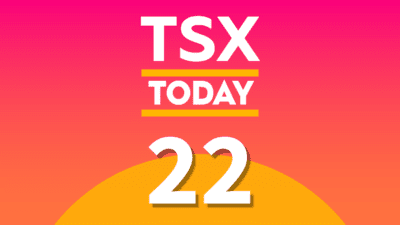Air Canada’s (TSX:AC) 6.37% loss in 2021 was a significant improvement from the 53.06% loss in 2020. Investors thought the airline stock would fly high following the financial assistance from the federal government. Unfortunately, it’s been seven straight quarterly losses beginning in 2020.
The only positive sign was the tripling of revenue in Q3 2021 (quarter ended September 30, 2021). Besides the jump in revenue to $2.1 billion, Air Canada reported an 87% increase in capacity versus Q3 2020. Because of improved financial condition, management also announced its withdrawal from the Government of Canada’s financial support.
Potential grounding
The comments of Air Canada CEO Michael Rousseau then stated that the recovery could be in 2024 and maybe 2023, not 2025, but that was before the new COVID variant. Now, airline companies face uncertainties due to Omicron. Many countries have ordered travel bans and restrictions already. Some industry observers say it’s like the situation across the globe in 2020.
With national COVID cases reaching new highs in certain regions, the government might order lockdowns and travel restrictions to prevent the spread of Omicron. Air Canada will again be in jeopardy if it happens. It could be grounded once more.
Challenging times
Health Minister Jean-Yves Duclos announced the federal government will deliver 140 million rapid COVID-19 tests to provinces and territories this month. Also, the allocation of the tests is on a per-capita basis. Health officials said COVID-19 infections and hospitalizations across Canada are increasing due to Omicron.
Duclos said, “These are challenging times, but they will not last forever. We have the tools we need to get through this new wave of the pandemic. Let’s continue to exercise caution.” Meanwhile, Chief Public Health Officer Dr. Theresa Tam said Omicron creates a need for frequent testing.
Tam added, “The difficulty with this particular virus is just how quickly people may develop the infection, post exposure and things can shift really fast.” Chris Simpson of Ontario Health said fewer people experience COVID-19 pneumonia from Omicron. However, patients in hospitals are those with chronic illnesses worsened by COVID-19 infection.
Business disruption
Karl Moore, an aviation analyst, said airlines have had one of the most challenging two years on record. He cited the 90% cancellation of Canadian flights at the height of the pandemic. Moore added that over the holiday season, staffing shortages due to COVID-19 flights led to a 9% reduction in flights worldwide.
Air Canada and other airlines could face a backlash due to flight cancellations and lengthy delays. Some industry experts say that instead of blaming Omicron, airline companies must compensate passengers for the delays. Air Passenger Rights President Gabor Lukacs said, “You cannot blame your own failure to have adequate crew on the passenger. That’s the airline’s responsibility.”
Lukacs castigated Air Canada for not planning properly for a contingency. He said that sweeping cancellations could have been avoided if the airline hired sufficient manpower to deal with even substantial cancellations.
Risky investment
Based on the estimate of the International Aviation Transport Association, normal operations will return to 2019 levels in two years. However, the timetable could move to a later date if the Omicron situation worsens. Air Canada will not attract investors, and the price could even tank below $20 soon.







